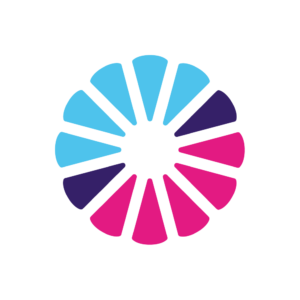CCCS Announces that Most Medical Debt to Be Removed from Credit Reports; Student Loan Repayments Extended Until August 31st
In a recent and welcomed policy shift, Equifax, Experian, and TransUnion announced that nearly 70% of current medical debt will be removed from credit reports, beginning this summer.
Millions of Americans are saddled with medical debt and the problem continues to grow. Studies from 2021 found that 37% of Americans had medical debt, while 23% did not currently have medical debt but had it in the past. The Consumer Financial Protection Bureau (CFPB) estimates that at this moment, some $88 billion in medical bills sits on 43 million credit reports. Equifax, Experian, and TransUnion Medical maintain reports on more than 200 million people in the U.S. Often, medical bills can be exorbitant and end up on credit reports, ruining credit scores and preventing people from accessing mortgages, car loans and even employment. Many of these people have paid their bills on time for their entire lives until forced into medical debt.
Expanding on their new policies, the three credit reporting firms have further stated that debt that was paid after it was sent to collections will be removed beginning this July. At the present time, even if these debts are paid off, they may remain on a consumer’s credit report for up to seven years. Under the companies’ new guidelines, new unpaid medical debts won’t get added to credit reports for a full year after being sent to collections—and unpaid medical debts of less than $500 will be removed in the first half of 2023. It is expected that the $500 threshold may rise.
These significant changes in the reporting of medical debt are likely due to the ongoing pressure exerted by the Consumer Financial Protection Bureau (CFPB), which earlier in March publicized that it would begin to hold credit reporting firms accountable for reporting erroneous medical debts.
The CFPB has also released research that indicates medical debt is less predictive of a person’s ability to repay than other kinds of loans.
The U.S. credit reporting system—including Equifax, Experian, and TransUnion—plays an inordinate role in determining who gets credit and who doesn’t. This is exacerbated by the fact that consumers have very little control over what is added to their credit reports which rely on information submitted by lenders, collections firms and others.
The CFPB said consumers submit more complaints to the agency about credit-report errors than any other problem and seldom receive any relief. They have made changes in the credit reporting system a major priority and the impact will be felt by consumers as early as this summer.
And while student loan forgiveness is still up in the air, the pause on student loan repayment has been extended through August 2022. Borrowers will not be asked to make payments until after Aug. 31 and interest rates are expected to remain at 0% during that period.
Anxiety was rising for many until the April 5th announcement of the extension of student loan repayments. Prior to the announcement, payments were planned to resume on May 1, 2022. For the past two years, most student loan borrowers have not been required to make payments on their balances and their interest rate has been frozen.
White House officials have repeatedly stressed that they would like to resolve the student loan forgiveness issue prior to the resumption of repayments, but discussions are still ongoing.
In a recent survey by the Student Debt Crisis Center, 92% of fully-employed borrowers are concerned about being able to afford their payments due to rising inflation. One in three borrowers claimed they’ve reduced spending on necessities like food, rent and healthcare in preparation for payments to resume.
With about 70% of college graduates leaving school with student loan debt, it is certain that student loans will continue to be part of the landscape for much of the WNY community. Last year, the average per person debt was $35,397 and the typical monthly payment–$393 per month. At current time, nearly 2.4 million New Yorkers have outstanding student loans totaling more than $90 billion combined.
Consumer Credit Counseling Service (CCCS) encourages anyone interested in reviewing or repairing their credit or looking for help navigating student loan repayments to contact them at 712-2060 or visit www.consumercreditbuffalo.org. CCCS is the only provider of student loan counseling in the region and has worked with hundreds of area residents struggling with all kinds of debt over the past several years.
Many individuals with credit card debt and/or student loans feel overwhelmed with anxiety and fear as they try to set up payment plans, with some falling prey to the abundance of unscrupulous companies claiming to help. CCCS specifically designed its program to meet the needs of this ever growing population segment.
CCCS can help with all financial issues and urges everyone to take positive action that will promote financial stability: For those interested in any type of help–call 712-2060 or visit www.consumercreditbuffalo.org

